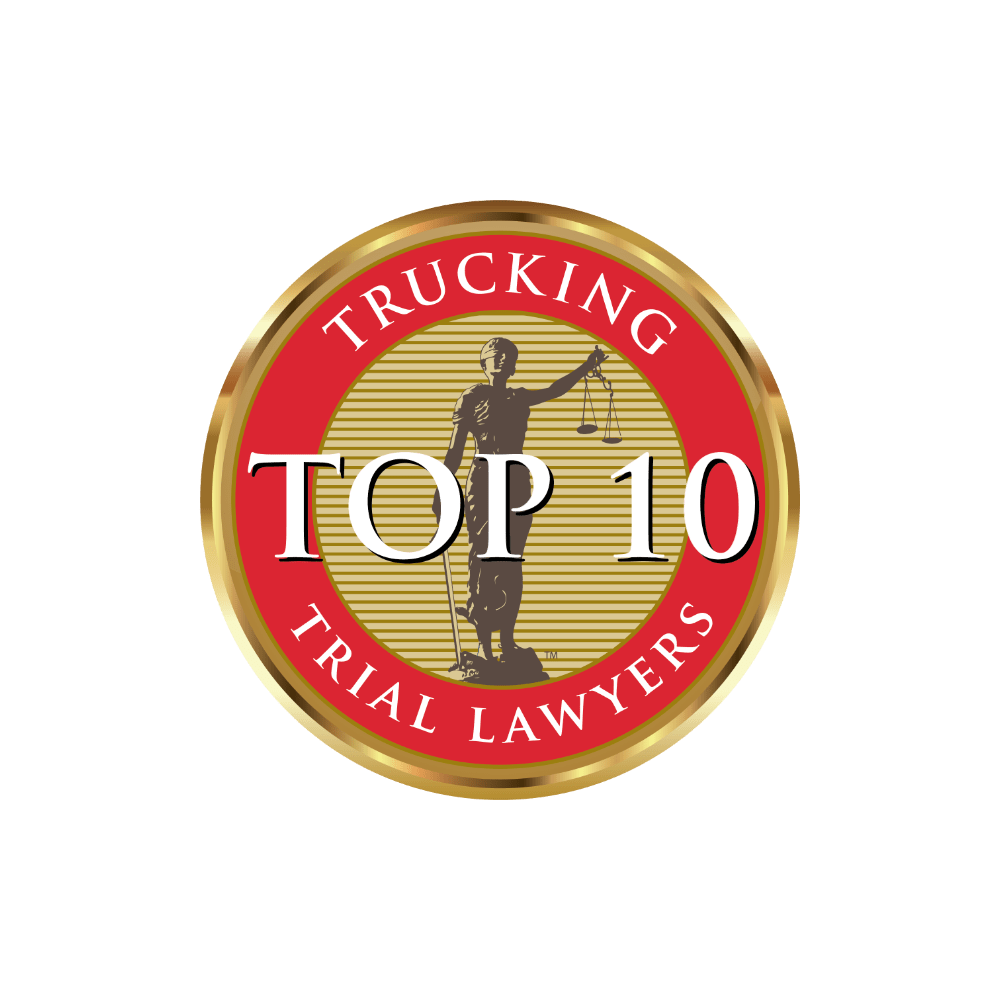Garbage trucks are a common sight on Charlotte’s roads, but their size, weight, and frequent stops make them a significant hazard to other motorists, pedestrians, and cyclists.
Operating in residential neighborhoods, busy intersections, and commercial areas, these large waste collection vehicles have limited visibility and restricted maneuverability, increasing the risk of serious accidents. When a collision occurs, the consequences can be devastating, often resulting in severe injuries or fatalities.
Unlike standard car accidents, liability may extend beyond the driver to include waste management companies, municipal agencies, and even vehicle manufacturers. Determining fault requires an in-depth investigation and a solid legal strategy to ensure that victims receive the full compensation they are entitled to under North Carolina law.
North Carolina follows a contributory negligence rule, meaning that if the victim is even 1% at fault, they may be barred from recovering compensation.
Because of this strict legal standard, building a compelling case is crucial. Having an experienced truck accident attorney can make all the difference in proving fault and securing the compensation you need.
This guide will explore the dangers of garbage truck accidents, the importance of legal representation, how liability is determined, the types of compensation available, and the steps you should take after an accident to protect your rights.
The Dangers of Garbage Truck Accidents
Garbage trucks pose unique dangers on Charlotte’s roads due to their size, frequent stops, and operation in high-traffic areas. These vehicles are designed to carry heavy loads, and their weight can make collisions particularly destructive. Some of the primary risks associated with garbage trucks include:
- Limited Visibility: Garbage trucks have large blind spots, especially along the sides and rear. If a driver fails to check these areas before turning or reversing, they may strike nearby vehicles, pedestrians, or cyclists.
- Frequent Stops and Sudden Movements: Garbage trucks make frequent, unpredictable stops as they collect waste. Drivers behind these trucks may not anticipate sudden braking, leading to rear-end collisions.
- Backing-Up Accidents: Many garbage truck accidents occur when the driver is reversing. These trucks often lack adequate rearview visibility, putting pedestrians and cyclists at high risk.
- Falling Debris or Equipment Malfunctions: Improperly secured waste or mechanical failures can cause hazards on the road, leading to accidents.
- Driver Fatigue and Distraction: Waste collection is demanding, and drivers often work long shifts with early morning hours. Fatigue and distractions, such as operating waste collection mechanisms, can contribute to accidents.
Due to these risks, garbage truck drivers and waste management companies must follow strict safety protocols to prevent accidents. When negligence occurs, victims have the right to seek legal action.
Why You Need Legal Representation
Pursuing a garbage truck accident claim without legal representation can be challenging. Large waste management companies and municipal entities often have extensive legal resources to defend against claims.
Without an experienced attorney, victims may struggle to gather necessary evidence, prove liability, or negotiate fair compensation.
One of the most significant challenges in these cases is determining who is responsible for the accident. Unlike standard car accidents, where fault is often straightforward, garbage truck accidents can involve multiple liable parties, such as:
- The truck driver, if negligence (such as distracted driving, speeding, or failure to yield) played a role.
- The waste management company, if improper training, lack of supervision, or unrealistic work schedules contributed to the accident.
- The municipality, if the truck was owned or operated by the city and there was a failure in oversight or maintenance.
- The vehicle or parts manufacturer, if defective brakes, faulty hydraulics, or other mechanical failures contributed to the accident.
An experienced attorney can help by:
- Conducting a thorough investigation, including reviewing driver records, maintenance logs, and surveillance footage.
- Gathering witness statements and accident reports to build a strong case.
- Negotiating with insurance companies to ensure fair compensation for medical expenses, lost wages, and other damages.
- Taking legal action against government entities when necessary, as these cases often involve unique procedural challenges and strict deadlines.
Without proper legal representation, victims risk being denied the compensation they need to recover fully.
Determining Liability in a Garbage Truck Accident
Liability in a garbage truck accident can be challenging to establish, as multiple parties may share responsibility. Unlike a standard car accident, where fault typically falls on one or two drivers, garbage truck accidents often involve corporations, municipal agencies, and third-party service providers. A thorough investigation is needed to determine who is legally responsible for the crash.
One of the most common causes of garbage truck accidents is driver negligence. If the truck driver was distracted, fatigued, impaired, or operating the vehicle recklessly, they may be held accountable for the accident.
Many garbage trucks operate early in the morning when visibility is reduced, and drivers often work long shifts. Fatigue-related errors, failure to check blind spots, or misjudging distances can lead to serious collisions with other vehicles or pedestrians.
In many cases, liability extends beyond the driver to the waste management company, which has a legal duty to:
- Hire qualified drivers and ensure they are properly licensed and trained.
- Enforce safety regulations and limit driver fatigue.
- Maintain fleet vehicles through regular inspections and necessary repairs.
- Ensure proper loading and disposal procedures are followed to prevent roadway hazards.
Mechanical failures can also play a significant role in garbage truck accidents. If the truck’s brakes fail, hydraulic systems malfunction, or the vehicle suffers a mechanical breakdown due to poor maintenance, liability may fall on the maintenance provider or manufacturer.
Garbage trucks rely on machinery to lift and compact waste, and failures in these systems can cause sudden and dangerous movements, endangering those nearby.
Investigating maintenance records and determining whether the truck was in proper working condition before the accident is crucial in establishing fault.
Other factors that may contribute to garbage truck accidents include:
- Road hazards and poor infrastructure – Uneven roads, large potholes, and poor signage can make it difficult for drivers to maneuver safely, leading to collisions or rollovers. If an accident is caused by hazardous road conditions, the city or municipality responsible for road maintenance may share liability.
- Improperly loaded or unsecured waste – Overloaded or improperly secured waste can fall from the truck, creating dangerous road conditions for other drivers.
- Defective vehicle parts – If a manufacturer produces faulty brakes, defective steering mechanisms, or malfunctioning warning lights, they may be held responsible for the accident.
To build a strong case, a skilled attorney will gather key evidence, including:
- Accident reports filed by law enforcement.
- Truck maintenance records and inspection history.
- Black box data and GPS tracking information.
- Surveillance footage or dashcam videos from the accident scene.
- Eyewitness testimonies from other drivers or pedestrians.
- Expert accident reconstruction reports.
With the right legal representation, victims can hold negligent parties accountable and pursue the compensation they deserve.
Compensation Available for Victims
Victims of garbage truck accidents may suffer significant financial, physical, and emotional hardships. Depending on the severity of the accident and the circumstances surrounding it, they may be entitled to compensation for a variety of damages, including economic and non-economic losses.
Economic Damages
These damages cover the tangible financial losses that result from an accident and may include:
- Medical expenses: Covers emergency treatment, hospital stays, surgeries, rehabilitation, medications, and long-term medical care.
- Lost wages and future earnings: Compensation for time off work due to injuries, as well as loss of future earning capacity if the victim is permanently disabled or unable to return to their previous job.
- Property damage: Covers repairs or replacement costs if the victim’s vehicle was damaged or totaled in the accident.
- Out–of–pocket expenses: Includes transportation costs for medical appointments, necessary home modifications for disabilities, and any required assistive devices such as wheelchairs or braces.
Non-Economic Damages
These damages compensate for the emotional and psychological toll that the accident has had on the victim’s life and well-being:
- Pain and suffering: Compensation for physical pain, discomfort, and chronic injuries resulting from the accident.
- Emotional distress: Covers conditions such as anxiety, depression, and post-traumatic stress disorder (PTSD) that may result from the trauma of the crash.
- Loss of enjoyment of life: If injuries prevent the victim from engaging in hobbies, sports, or daily activities they once enjoyed, they may be entitled to compensation.
- Loss of consortium: When a victim’s injuries negatively impact their relationship with their spouse or family members, compensation may be available to address the loss of companionship, support, and intimacy.
Wrongful Death Compensation
If a loved one is fatally injured in a garbage truck accident, surviving family members may be eligible to pursue a wrongful death claim. Compensation in these cases may include:
- Funeral and burial expenses.
- Loss of financial support and income the deceased would have provided.
- Compensation for the emotional pain and suffering endured by surviving family members.
- Loss of companionship, guidance, and care.
Punitive Damages
In cases where gross negligence was involved, such as reckless driving, intentional safety violations, or a company’s failure to enforce proper safety measures, punitive damages may be awarded.
Unlike economic and non-economic damages, which compensate the victim, punitive damages are meant to punish the responsible party and deter similar misconduct in the future. These damages are typically awarded in cases where the at-fault party’s actions were particularly reckless or displayed a willful disregard for safety.
Securing full and fair compensation can be challenging, particularly when dealing with large waste management companies or municipal entities with powerful legal teams. Having a truck accident attorney on your side can make all the difference in maximizing your settlement and ensuring justice is served.
What to Do After a Garbage Truck Accident
If you or a loved one is involved in a garbage truck accident in Charlotte, taking the right steps immediately can protect your legal rights and strengthen your case:
- Seek Medical Attention: Even if injuries seem minor, get a medical evaluation as some injuries may not be immediately apparent.
- Call Law Enforcement: A police report is crucial for documenting the accident and determining fault.
- Gather Evidence: Take photos of the accident scene, vehicle damage, injuries, and any road conditions that may have contributed to the crash.
- Get Witness Information: Collect names and contact details of any bystanders who saw the accident.
- Avoid Speaking with Insurance Adjusters Without Legal Advice: Insurance companies may try to minimize payouts. Consult with an attorney before accepting any settlements.
- Contact a Truck Accident Attorney: A lawyer can guide you through the legal process and help you pursue full compensation.
Contact Auger & Auger for Help Today
If you or a loved one has been injured in a garbage truck accident in Charlotte, don’t face the legal battle alone. At Auger & Auger, we have decades of experience handling truck accident cases and fighting for the rights of injured victims.
We offer a free, no–obligation consultation to discuss your case, and with our A&A Zero–Fee Guarantee, you won’t pay any legal fees unless we win your case.
Time is critical in these cases. Evidence needs to be preserved, and deadlines must be met. Contact us today to speak with a skilled Charlotte truck accident lawyer who can help you get the justice and compensation you deserve. Call us now or visit our website to schedule your consultation.
















